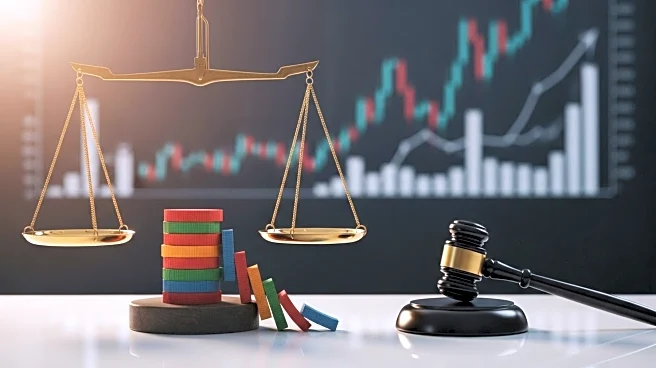What's Happening?
Lineage, Inc., a cold storage-focused real estate investment trust, is facing a lawsuit filed by Bleichmar Fonti & Auld LLP for alleged violations of federal securities laws. The lawsuit, filed in the U.S. District Court for the Eastern District of Michigan, claims that Lineage misrepresented its financial stability and growth potential in its IPO documents. The company had touted strong cash flows and growth opportunities due to the COVID-19 pandemic's impact on cold chain demand. However, it is alleged that Lineage was experiencing a downturn as customers reduced excess inventory and shifted to leaner inventories. Since its IPO at $78 per share, Lineage's stock price has fallen to approximately $40 per share.
Why It's Important?
The lawsuit against Lineage Inc. highlights the challenges faced by companies in the cold storage sector as they navigate post-pandemic inventory adjustments. Investors who purchased Lineage stock based on optimistic IPO projections may have suffered significant financial losses, prompting legal action. This case underscores the importance of accurate financial disclosures and the potential consequences of misleading investors. The outcome of this lawsuit could impact Lineage's reputation and financial standing, as well as influence investor confidence in similar companies within the industry.
What's Next?
Investors have until September 30, 2025, to seek appointment as lead plaintiffs in the case. The legal proceedings will likely involve detailed examination of Lineage's financial disclosures and business practices. If the court finds merit in the allegations, Lineage may face financial penalties and be required to compensate affected investors. The case could also lead to increased scrutiny of IPO practices and disclosures in the real estate investment trust sector.
Beyond the Headlines
The lawsuit against Lineage Inc. may prompt broader discussions about the ethical responsibilities of companies during IPOs, particularly in sectors affected by global events like the COVID-19 pandemic. It raises questions about how companies should balance optimistic projections with realistic assessments of market conditions. The case could influence future regulatory measures aimed at ensuring transparency and protecting investors.










